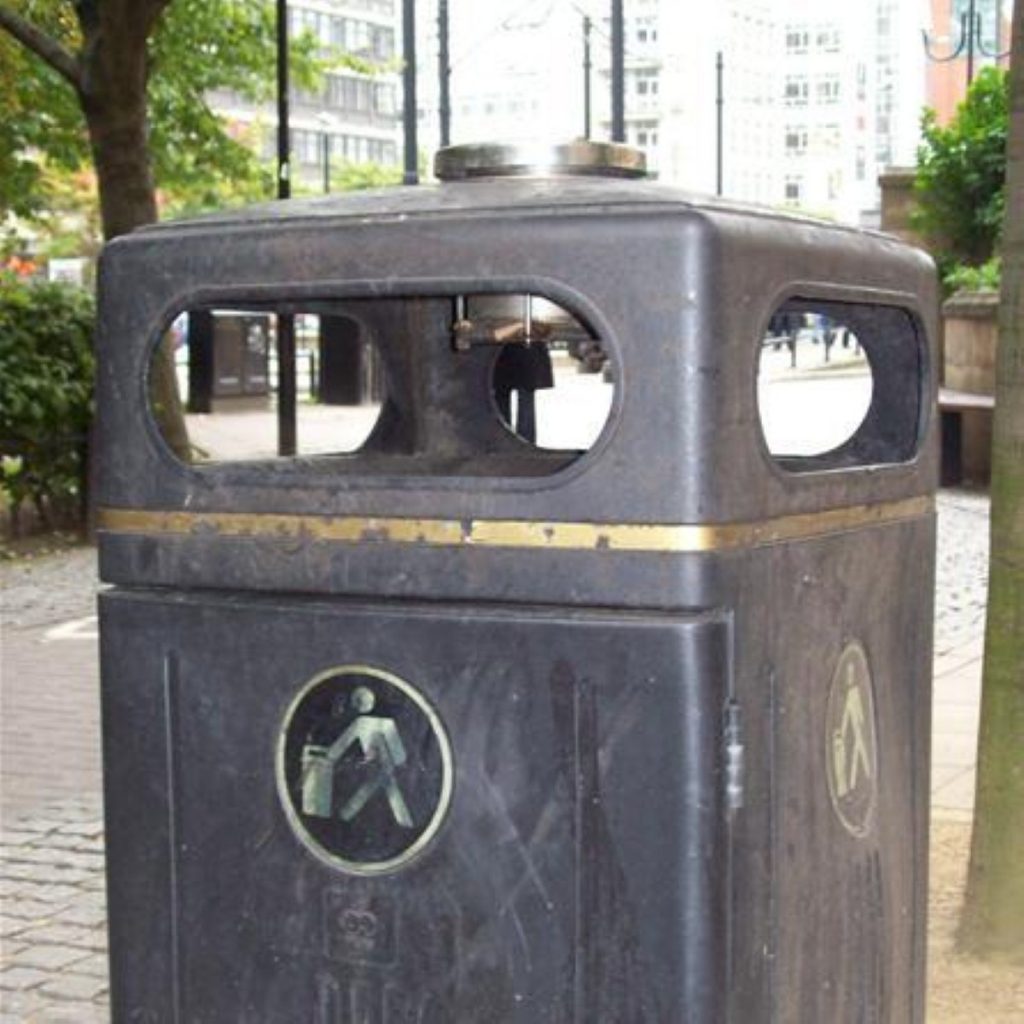Govt blamed as litter rises 500%
By Laura Miller
Councils’ failure to curb a 500 per cent rise in litter through education and fines loses taxpayers £500 million a year in clear-up costs, a report released today has said.
Anti-litter initiatives are either restricted to the local level, or if carried out nationally, are too limited to have a sustained impact, the report, by think tank Policy Exchange and the Campaign to Protect Rural England (CPRE), says.
The report, titled Litterbugs, is backed by author Bill Bryson, president of CPRE, who criticised a “lack of co-ordination” and “disjointed” and inconsistent communication over imposing penalties, for councils’ failed efforts to change public attitudes and the huge rise in litter since the 1960s.
“We must build civic pride in clean and tidy environments, with communities competing to be spotless,” said Bryson.
“Only then can we stop the exasperating and routine vandalism of a country so rich in natural, cultural and built heritage.”
The report’s authors criticised local authorities over fining and called for greater consistency.
Too few local authorities fine, and many fail to fine the worst offenders, such as young urban males, as wardens perceive them to be a threatening and dangerous, they said.
They also propose a series of measures for cracking down on litterers, including the creation of a national body to coordinate anti-littering campaigns and programmes, and the introduction of a New York style deposit scheme to cut down drive-by litter.
Ben Caldecott, head of Policy Exchange’s environment and energy unit, said: “We know what works from abroad, where schemes have cut littering rates by up to 80 per cent.”
He argued council clean-up costs could be cut massively if simple measure like providing more bins were put in place.
“Over time, if we better educate people and stop the perception that litter is somehow ‘someone else’s problem’, then we can get to the root causes of this blight on our towns and countryside,” he added.
The report called for more government action to take account of litter and littering behaviour in the design of Britain’s public spaces, based on research that an intelligent approach to designing public spaces can reduce littering at no extra cost to taxpayers.
The report revealed stark national differences between UK councils in terms of litter performance. Inner city Haringey council ranked bottom, while rural West Dorset council topped the poll. Overall, urban areas were more likely to be targeted by litterers than the countryside.
The report is part of CPRE’s Stop the Drop campaign, aimed at raising national awareness about the problems of littering.
Later this month it is supporting British Waterways’ Towpath Tidy 2009, a series of locally coordinated activity days along targeted stretches of more than 2,000 miles of canals and rivers.





-01.png)